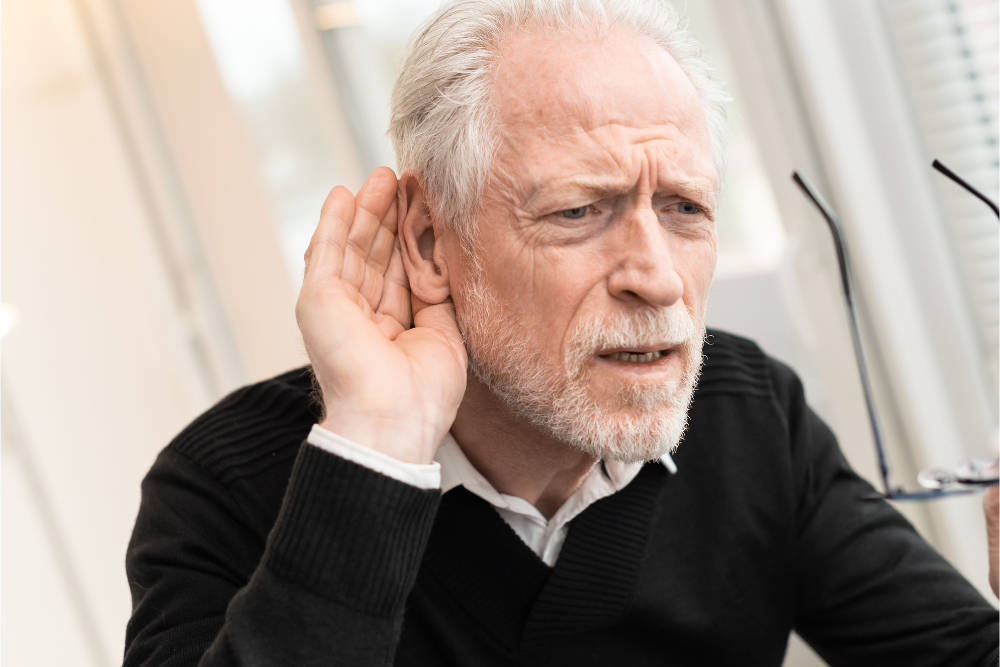Diabetes is a prevalent chronic condition affecting millions of people worldwide. Known for its impact on blood sugar levels, diabetes can lead to various complications, including cardiovascular issues, kidney disease, and neuropathy. However, one often overlooked consequence of diabetes is its potential impact on hearing.
Research has increasingly shown a link between diabetes and hearing loss, underscoring the importance of comprehensive care that includes attention to auditory health. This article explores the connection between diabetes and hearing loss and why it’s crucial to see an ENT specialist in Los Angeles manage this often-overlooked complication.
Diabetes
Diabetes is a metabolic disorder characterized by elevated blood sugar levels over prolonged periods. It primarily comes in two forms:
Type 1 Diabetes: An autoimmune condition where the body’s immune system attacks insulin-producing cells in the pancreas, leading to little or no insulin production.
Type 2 Diabetes: A condition where the body becomes resistant to insulin or doesn’t produce enough insulin, often associated with obesity and lifestyle factors.
Both types result in high blood glucose levels, which can damage various tissues and organs over time.
Hearing Loss: An Overview
Hearing loss can occur due to various factors, including aging, exposure to loud noises, infections, and genetic predisposition. It can range from mild to profound and affects one or both ears. The three main types of hearing loss include:
- Conductive Hearing Loss: Involves problems with the ear canal, eardrum, or middle ear and its tiny bones, which impede the transmission of sound.
- Sensorineural Hearing Loss: Caused by damage to the inner ear or the nerve pathways from the inner ear to the brain. It is the most common type and is often permanent.
- Mixed Hearing Loss: A combination of conductive and sensorineural hearing loss.
The Connection Between Diabetes and Hearing Loss
Research indicates that diabetes can significantly increase the risk of hearing loss. The link between the two conditions is supported by several mechanisms:
Microvascular Damage: High blood sugar levels can cause damage to small blood vessels throughout the body, including those in the inner ear. These vessels supply oxygen and nutrients to the auditory system. Damage to these vessels can impair the function of the inner ear, leading to sensorineural hearing loss.
Neuropathy: Diabetes can lead to neuropathy, a condition where nerve damage occurs due to high blood sugar levels. The auditory nerve, which transmits sound signals from the ear to the brain, can be affected by diabetic neuropathy, resulting in hearing loss.
Oxidative Stress and Inflammation: Chronic hyperglycemia (high blood sugar) induces oxidative stress and inflammation, which can damage the delicate structures within the ear. This damage can accumulate over time, leading to progressive hearing loss.
Ototoxicity: Certain medications used to manage diabetes and its complications, such as diuretics and some antibiotics, can be ototoxic, meaning they can harm the auditory system and contribute to hearing loss.
Atherosclerosis: Diabetes is associated with a higher risk of atherosclerosis, a condition where arteries become narrowed and hardened due to plaque buildup. Atherosclerosis can reduce blood flow to the cochlea (a part of the inner ear), impairing its function and leading to hearing loss.
Why ENT Care Is Crucial for Diabetic Patients
Given the link between diabetes and hearing loss, it’s essential for diabetic patients to include ENT care in their overall healthcare regimen. Here’s why:
- Regular hearing screenings can help detect hearing loss early, allowing for timely intervention. ENT specialists in Los Angeles are trained to conduct thorough evaluations and can identify hearing loss that may otherwise go unnoticed.
- ENT doctors can provide holistic management of hearing loss in diabetic patients. This includes fitting hearing aids, offering cochlear implants for severe cases, and providing strategies to cope with hearing impairment.
- Diabetic patients often experience other ENT-related issues, such as balance problems and increased susceptibility to ear infections. ENT care can address these complications, improving the patient’s overall quality of life.
- Regular visits to an ENT doctor can help monitor the progression of hearing loss and adjust treatment plans as needed. This ongoing care is crucial for managing chronic conditions like diabetes.
- ENT specialists in Los Angeles can collaborate with endocrinologists, primary care physicians, and audiologists to provide integrated care tailored to the needs of diabetic patients, ensuring all aspects of health are addressed.
Preventative Measures and Lifestyle Adjustments

- Maintain Blood Sugar Levels: Keeping blood sugar levels within the target range can reduce the risk of microvascular and nerve damage, thereby protecting hearing health.
- Regular Hearing Checks: Diabetic patients should have their hearing tested regularly. Early detection of hearing changes can lead to prompt treatment and better outcomes.
- Protect Ears from Loud Noises: Exposure to loud noises can exacerbate hearing loss. Diabetic individuals should avoid noisy environments and use ear protection when necessary.
- Healthy Diet and Exercise: A balanced diet and regular physical activity can improve overall health and potentially reduce the risk of hearing loss by controlling blood sugar levels and reducing inflammation.
- Avoid Ototoxic Medications: Patients should consult their doctors about the potential ototoxicity of their medications and explore alternative treatments if necessary.
- Manage Blood Pressure and Cholesterol: Controlling blood pressure and cholesterol levels can prevent atherosclerosis and maintain good blood flow to the inner ear.
- Stay Hydrated: Proper hydration is important for maintaining the health of all bodily tissues, including those in the ears.
Coping with Hearing Loss
For diabetic patients already experiencing hearing loss, several strategies can help manage the condition:
Use of Hearing Aids – Modern hearing aids are highly effective and can significantly improve the quality of life for those with hearing impairments. ENT specialists can help select and fit appropriate devices.
Assistive Listening Devices – Hearing apparatuses, such as amplified phones and TV listening systems, can assist in daily activities and improve communication.
Communication Strategies – Learning lip-reading, using visual cues, and ensuring good lighting can enhance understanding in conversations.
Support Groups – Joining support groups for individuals with hearing loss can provide emotional support and practical advice for coping with the condition.
Regular Follow-ups – Continuous monitoring and follow-up appointments with an ENT specialist in Los Angeles are essential to effectively managing hearing loss and making necessary adjustments to treatment plans.
Conclusion
The link between diabetes and hearing loss is a significant but often overlooked aspect of diabetic care. High blood sugar levels and related complications can damage the auditory system, leading to hearing impairments. Recognizing this connection underscores the importance of comprehensive care that includes regular ENT visits.
By integrating ENT care into their health regimen, diabetic patients can detect hearing loss early, receive appropriate treatments, and improve their overall quality of life. Preventative measures and proactive management strategies can further help protect hearing health and ensure better long-term outcomes for those living with diabetes.
If you have diabetes and are concerned about hearing loss, contact C/V ENT Surgical Group today to schedule an appointment with one of our ENT doctors in Los Angeles.

